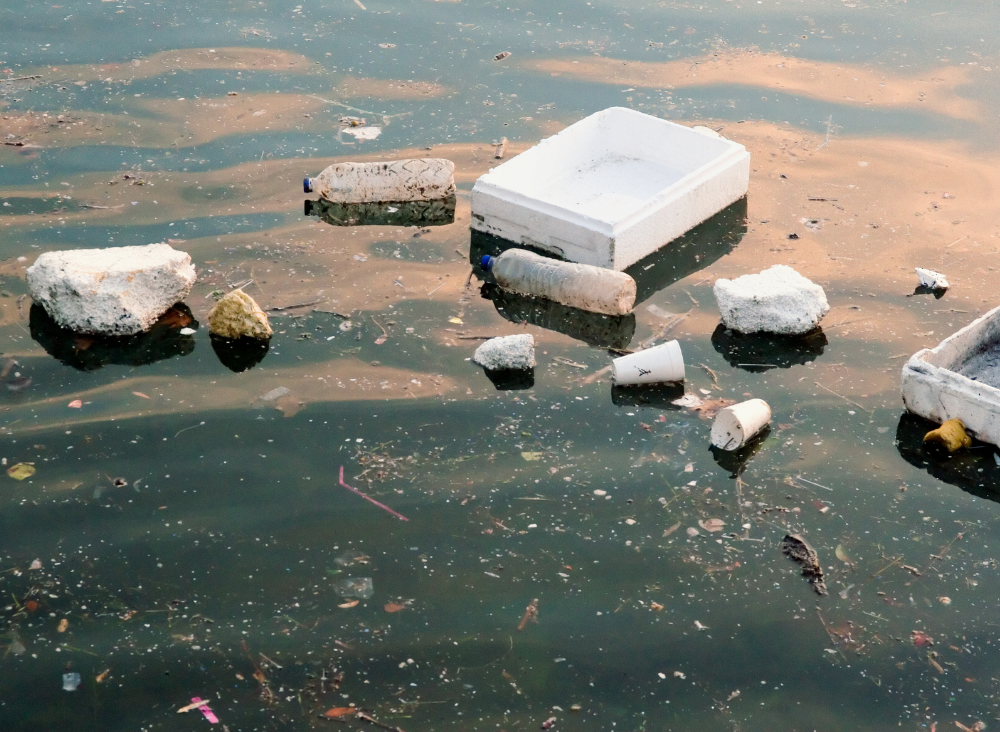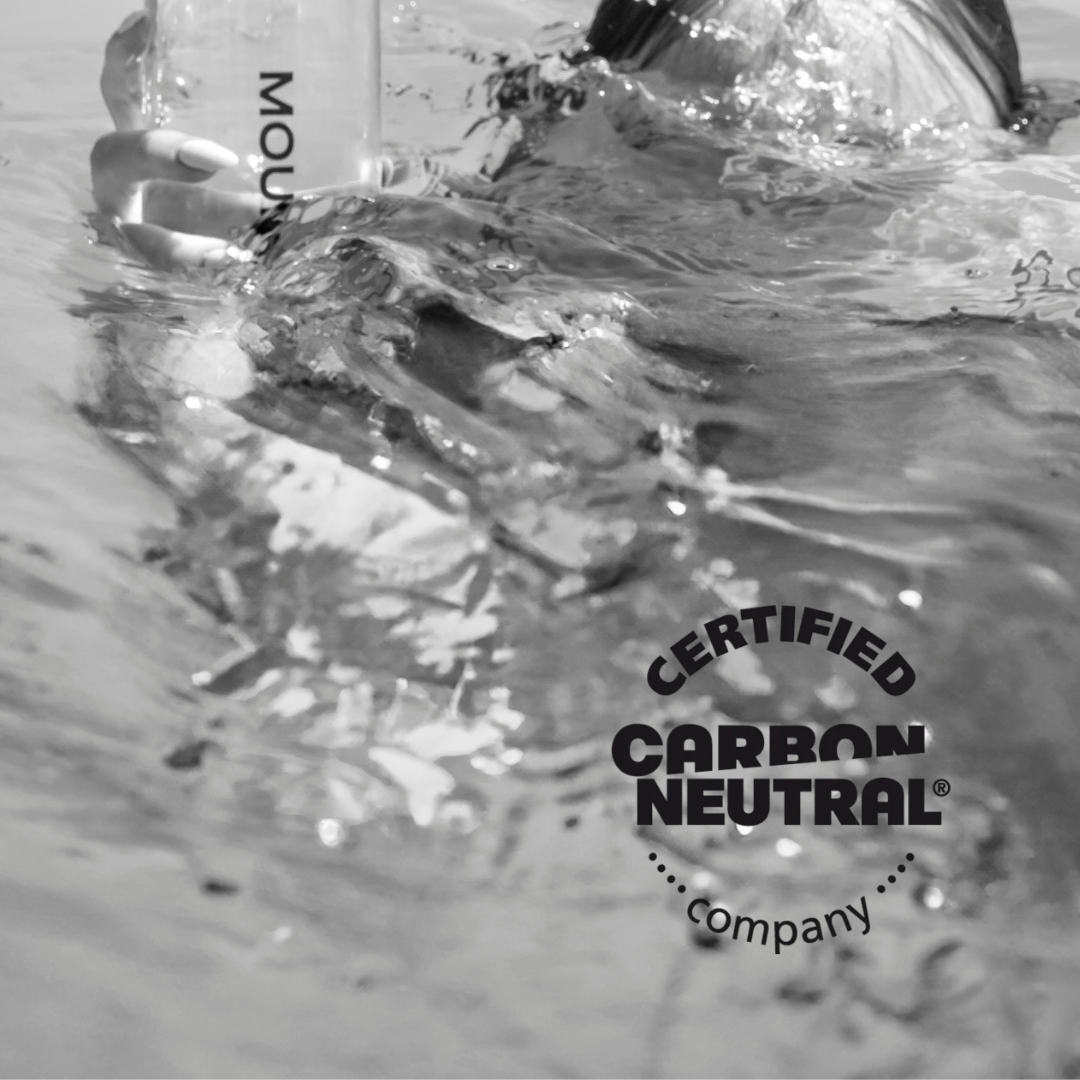Water pollution is a silent threat that's been creeping into our lives, especially in developing countries like South Africa. The quality of drinking water significantly impacts human health, and unfortunately, many are unaware of the lurking dangers. With waterborne diseases responsible for a staggering 80% of the world's diseases and 50% of child deaths globally, it's clear that the issue demands immediate attention.
In South Africa, the memories of Day Zero still linger, serving as a stark reminder of the importance of water conservation and the dire consequences of neglecting our water sources. The link between water pollution and health is undeniable, affecting everything from child health to the risk of cancer. As you dive deeper into this topic, you'll uncover the myriad ways polluted water impacts human health and why it's crucial to take action now.
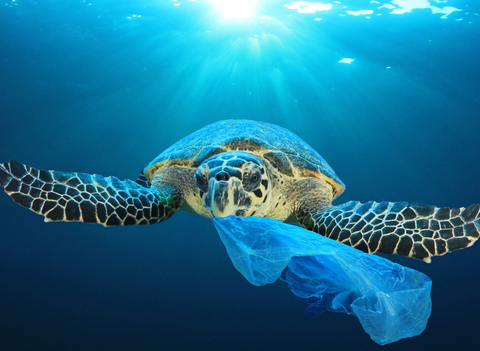
Key Takeaways
-
The critical link between water pollution and human health: Water pollution in South Africa poses serious health risks, including waterborne diseases and exposure to toxic contaminants like heavy metals, leading to conditions ranging from diarrhoeal diseases to cancer.
Sources and Types of Water Pollution in South Africa
South Africa faces a significant challenge with water pollution, a pressing issue that threatens not only its natural resources but also the health of its communities. Understanding the sources and types of water pollution can help in mitigating risks and promoting water conservation efforts. In this context, it’s crucial to delve into how different pollutants enter water bodies and their impact on human health.
Industrial Effluents: Mining, Manufacturing
The mining and manufacturing sectors are substantial contributors to South Africa's economy but are also major sources of water pollution. The mining industry, in particular, discharges a variety of pollutants, including heavy metals and acid mine drainage, into rivers and groundwater. These pollutants can have severe impacts on health, leading to waterborne diseases and conditions like lead poisoning that affects neurological development. Manufacturing processes, on the other hand, release chemicals and non-biodegradable materials into the water, posing threats to both aquatic ecosystems and human health. This scenario accentuates the importance of stringent regulations and water conservation measures to mitigate the effects of industrial effluents on water quality.
Agricultural Runoff: Pesticides, Fertilisers
Agricultural activities significantly contribute to water pollution through the runoff of pesticides and fertilisers. These chemicals seep into water bodies, leading to eutrophication, which depletes oxygen levels, harms aquatic life, and compromises water quality. Prolonged exposure or consumption of such contaminated water can lead to health issues, including hormonal imbalances and cancers. The situation calls for sustainable agricultural practices and the use of eco-friendly products that safeguard water quality and promote water conservation.
Urban Pollution: Sewage, Litter
Urban areas in South Africa grapple with pollution from sewage and litter, which finds its way into rivers and streams. Inadequate waste management and sewer systems lead to the contamination of water bodies with pathogens and harmful substances. Exposure to or consumption of such polluted water can cause gastrointestinal diseases, skin infections, and other health problems. Addressing these issues through improved infrastructure and public awareness campaigns is crucial for enhancing water quality and health outcomes.
Challenges Posed by Informal Settlements and Inadequate Sanitation Infrastructure
Informal settlements and inadequate sanitation infrastructure exacerbate the water crisis in South Africa. Limited access to clean water and proper sanitation facilities in densely populated areas leads to the contamination of water sources with human waste. This situation poses significant health risks, including the spread of waterborne diseases like cholera and dysentery. Efforts to upgrade sanitation infrastructure, alongside promoting water conservation practices, are essential in tackling water pollution and its impact on human health.
Routes of Exposure to Contaminants
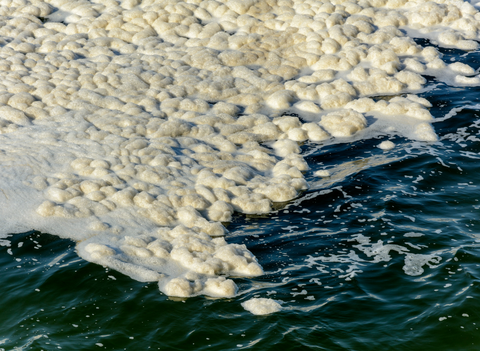
Understanding how water pollution affects human health requires exploring the various routes through which you can be exposed to contaminants. The water crisis and the urgent need for water conservation in South Africa highlight the importance of addressing water pollution. Here, we delve into the primary avenues of exposure, revealing why safeguarding water quality is vital for protecting health.
Drinking Water Contamination: Municipal Water Sources, Informal Settlements
Your daily water consumption is a direct link to potential health risks. In South Africa, municipal water sources are under constant threat from industrial effluents, sewage, and agricultural runoff, posing a significant challenge in maintaining water purity. Informal settlements exacerbate the problem, where inadequate sanitation infrastructure leads to the contamination of local water supplies. Drinking water laced with harmful microorganisms or toxic chemicals can cause a range of health issues, from gastrointestinal infections to chronic diseases.
Recreational Water Exposure: Beaches, Rivers, Dams
Recreational activities in water bodies like beaches, rivers, and dams can be a hidden source of exposure to pollutants. Despite water conservation efforts, these sites often receive pollutants from upstream sources, affecting water quality. Coming into contact with or accidentally ingesting contaminated water can lead to skin irritations, respiratory issues, and waterborne diseases. Especially in areas near industrial zones or agricultural fields, the risk of encountering hazardous chemicals or pathogens is higher.
Food Chain Contamination: Fish Consumption, Agricultural Produce
Pollutants entering water bodies can accumulate in the ecosystem, moving up the food chain and reaching your plate through fish consumption or agricultural produce. Heavy metals, pesticides, and other toxic substances found in contaminated water can be absorbed by plants or accumulate in the tissues of fish. Consuming such contaminated food sources poses serious health risks, including neurological damage and increased risk of chronic diseases. Ensuring that your food comes from uncontaminated sources is essential for your health.
Airborne Pollutants from Industrial Emissions and Waste Sites
It's not just direct contact with contaminated water that poses a threat. Airborne pollutants from industrial emissions and waste sites can also affect your health. These pollutants can travel long distances and settle on water bodies, contributing to the water pollution crisis. Inhalation of such pollutants can lead to respiratory problems, cardiovascular diseases, and other health complications. Living in proximity to industrial areas or waste disposal sites increases your exposure to these harmful contaminants.
In light of these exposure routes, it's clear that addressing water pollution is critical in safeguarding human health. Initiatives focusing on water conservation and pollution control can play a significant role in reducing health risks associated with contaminated water sources. As an individual, being aware of these exposure routes allows you to take preventative measures, ensuring you and your loved ones stay healthy amidst the ongoing water crisis.
Health Effects of Water Pollution in South Africa
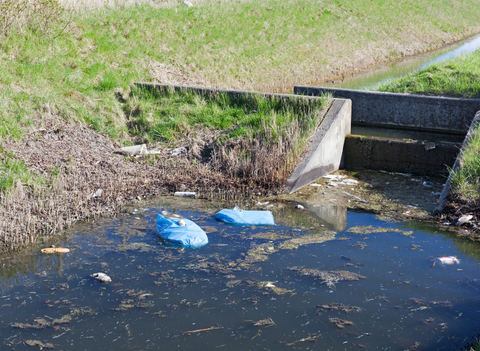
Water pollution in South Africa poses significant risks to human health, exacerbated by the ongoing water crisis gripping various parts of the country. Understanding how these issues affect you and your community is critical in advocating for water conservation and safer environmental practices.
Acute Health Effects: Diarrhoeal Diseases, Skin Infections
When you're exposed to contaminated water, the immediate health risks can be severe. South Africa, with its diverse environments from bustling urban areas to rural landscapes, sees a range of water pollution sources, including industrial discharge, mining effluents, and inadequate sewage treatment. This contamination often results in diarrhoea diseases, which stand as a leading cause of morbidity and mortality in the country, especially among children under five.
Skin infections are another pressing concern. Contact with polluted water during recreational activities or even daily chores can lead to infections and rashes. These acute effects not only pose immediate health risks but also contribute to a heightened burden on South Africa's healthcare system, making water conservation efforts all the more critical.
Chronic Health Effects: Cancer (e.g., from Heavy Metals), Respiratory Illnesses
The long-term effects of water pollution are perhaps even more alarming. Heavy metals, such as lead and arsenic, found in South Africa's water sources due to industrial runoff and mining activities, have been linked to an increased risk of cancer. These contaminants accumulate in your body over time, leading to potentially life-threatening health issues down the line.
Respiratory illnesses are another consequence of water pollution. While often associated with air quality, the pollutants found in water can also impact air quality as they evaporate or are aerosolised. For South Africans living near pollution hotspots, inhaling these contaminants can lead to chronic respiratory conditions, further underscoring the urgent need for effective water pollution control and water conservation strategies.
Impact on Vulnerable Populations: Children, Pregnant Women, Communities Near Pollution Hotspots
Water pollution's impact on human health becomes even more concerning when examining its effects on vulnerable populations. Children, due to their developing bodies and immune systems, are at a higher risk of experiencing severe health outcomes from exposure to polluted water. Diarrhoea diseases, which are largely preventable, remain a leading cause of child mortality in South Africa, highlighting the critical intersection between water pollution and public health.
Pregnant women exposed to contaminated water face not only personal health risks but also the possibility of adverse pregnancy outcomes, including low birth weight and developmental issues in their children. This vulnerability underscores the importance of safeguarding water quality as a means of protecting the most susceptible members of society.
Communities living near pollution hotspots, often in informal settlements or areas with inadequate infrastructure, face daily exposure to contaminated water sources. The cumulative effect of these exposures can lead to a cascade of health problems, disproportionately affecting these communities and contributing to cycles of poverty and illness.
Water conservation and the fight against water pollution are not just environmental issues; they're public health imperatives. By understanding the myriad ways in which water pollution affects health in South Africa, you're better equipped to advocate for change and support efforts aimed at ensuring clean, safe water for all.
Case Studies and Examples from South Africa
South Africa faces significant challenges with water pollution, which directly affects human health. By examining specific case studies, you'll gain a deeper understanding of the crisis' magnitude and the urgent need for water conservation efforts.
Vaal River Pollution: Effects on Surrounding Communities
The Vaal River, a critical water source for many, has seen increasing pollution levels over the years. Industrial discharge, sewage spillage, and agricultural runoff contribute to the detrimental water quality. Communities relying on the Vaal River for domestic and agricultural use are experiencing acute health impacts, including diarrhoea diseases and skin infections, a direct result of the contaminated water. It's crucial for residents and local officials to champion water conservation and implement stricter regulations to mitigate these health risks.
Acid Mine Drainage in Gauteng: Long-Term Health Implications
Gauteng, South Africa's economic hub, isn't immune to water pollution challenges. The region is plagued by acid mine drainage (AMD), where water passing through old, abandoned mines becomes acidic and laden with heavy metals. This not only devastates aquatic ecosystems but poses severe long-term health risks to humans, including cancer and neurological disorders, as these toxic substances enter the water supply. Addressing AMD requires innovative water conservation techniques and substantial cleanup efforts to safeguard public health.
Cape Town's Water Crisis: Lessons Learned and Health Consequences
Cape Town's recent water crisis, which nearly led to "Day Zero"—a point at which the city's water supply would be shut off—serves as a stark reminder of water's value and the dire consequences of its scarcity. During the crisis, water conservation efforts were escalated to avoid day zero, including the implementation of strict usage limits and the promotion of water-saving measures among residents. Though the city averted disaster, the crisis highlighted the vital link between water conservation and public health. Limited water availability heightened the risk of waterborne diseases, as communities were forced to rely on less secure water sources. This event underscored the need for sustainable water management strategies to prevent future crises.
In your journey towards understanding how water pollution affects human health, these cases from South Africa illustrate the broad spectrum of impacts, from immediate health threats to long-term crises. The importance of addressing water pollution through comprehensive conservation efforts cannot be overstated, pivotal not just for environmental wellbeing but for the health and future of communities across South Africa.
Environmental Justice and Water Pollution in South Africa
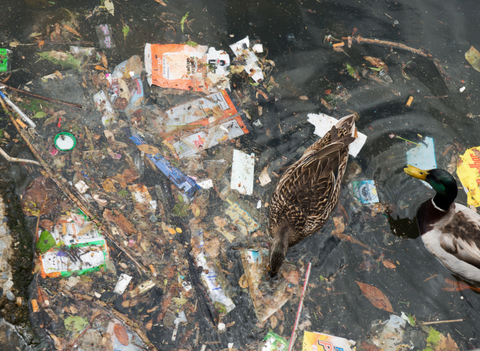
Disparities in Access to Clean Water and Sanitation
In South Africa, disparities in access to clean water and sanitation facilities are not just infrastructure issues but are deeply intertwined with environmental justice. Water pollution exacerbates these disparities, affecting human health disproportionately among communities. In rural and undeveloped areas, the lack of access to clean water sources and adequate sanitation facilities poses severe health risks. This is further compounded by water pollution from industrial activities and inadequate waste management, which contaminates water sources that communities rely on for daily use. Water conservation efforts are thus critical in these regions, not only to mitigate the water crisis but also to ensure equitable access to clean water for all.
Link Between Water Pollution and Socioeconomic Factors
The link between water pollution and socioeconomic factors in South Africa is stark. Lower-income communities often bear the brunt of water pollution due to their proximity to industrial sites and their limited access to clean water and sanitation services. This proximity increases their exposure to pollutants, leading to a higher incidence of waterborne diseases. The issue of water pollution and its impact on human health cannot be addressed without considering the socioeconomic disparities that exacerbate the vulnerability of these communities. Efforts to improve water quality must go hand in hand with strategies to elevate socioeconomic conditions, ensuring that environmental justice is served.
Efforts Toward Equitable Water Management and Public Health Interventions
Efforts toward equitable water management and public health interventions have become increasingly important in South Africa. The government and non-governmental organisations are focusing on improving water infrastructure, promoting water conservation, and implementing community-based programs to educate the public about the importance of clean water and sanitation. Initiatives such as the Water Saving Checklist highlight practical steps communities can take to conserve water and reduce pollution, illustrating a proactive approach to mitigating the water crisis. Moreover, public health interventions are directed at monitoring water quality, addressing sources of water pollution, and providing medical support to those affected by waterborne diseases. Through these combined efforts, South Africa is making strides toward ensuring that every citizen has access to clean water, thereby reducing the health impacts of water pollution and moving closer to achieving environmental justice.
Mitigation and Solutions Tailored to South Africa
Government Regulations and Enforcement Mechanisms
To combat water pollution and safeguard human health, South African authorities have tightened regulations and enforcement mechanisms. Water conservation laws are more stringent, ensuring industries and municipalities limit pollutants entering waterways. Regular inspections and monitoring are part of the enforcement strategies, promoting adherence to environmental standards. Your role in this process is crucial; by staying informed about local water quality regulations, you can contribute to ongoing efforts in water crisis mitigation and advocate for policies that prioritise water conservation.
Community-driven Initiatives for Water Quality Monitoring
Empowering communities is a pivotal strategy in addressing water pollution. Across South Africa, grassroots movements have led to the establishment of community-based water quality monitoring programs. These initiatives enable residents to actively participate in collecting water samples and reporting pollution incidents, fostering a collective responsibility towards water conservation. By engaging in these community-driven initiatives, you become part of the solution, contributing firsthand to the health and sustainability of local water resources.
Sustainable Development Practices: Wastewater Treatment, Green Infrastructure
Adopting sustainable development practices is key in mitigating the impact of water pollution on human health. Advanced wastewater treatment technologies and green infrastructure projects are being implemented to purify water and reduce pollutants. These initiatives not only aim to tackle the water crisis but also enhance the resilience of water systems against pollution. Your involvement in promoting and supporting sustainable practices within your community can drive significant progress in water quality improvement.
International Collaboration and Support for Water Management Projects
International collaboration plays a vital role in elevating water management efforts in South Africa. Partnerships with global entities provide access to funding, expertise, and technologies essential for combating water pollution. Projects focusing on water conservation, pollution control, and community education benefit greatly from such support, paving the way for innovative solutions to the water crisis. By advocating for and participating in internationally supported water management initiatives, you contribute to a global network committed to safeguarding water as a precious resource for future generations.
Future Challenges and Directions for South Africa
South Africa is at a pivotal moment in its battle against water pollution, with the health of its communities and the sustainability of its resources at stake. Your awareness and involvement are key to overcoming the pressing challenges that lie ahead. As you delve into the complexities of water pollution's impact on human health, it's crucial to understand the future challenges and innovative directions that could shape South Africa's environmental landscape.
Addressing Emerging Contaminants and Novel Pollutants
With rapid industrial growth and evolving agricultural practices, South Africa faces the daunting task of identifying and managing emerging contaminants in its water systems. These novel pollutants, often a byproduct of modern life, pose significant risks to both human health and aquatic ecosystems. Your vigilance and advocacy for stringent monitoring can help ensure these contaminants don't compromise water quality.
-
Detecting micro-plastics often overlooked in traditional water treatment processes, requires novel detection methods to prevent their accumulation in water bodies.
-
Pharmaceuticals and personal care products have found their way into waterways, necessitating advanced treatment technologies and public awareness campaigns about proper disposal practices.
-
Emphasising water conservation efforts to minimise the production of wastewater can significantly reduce the load of novel pollutants entering the environment.
Building Resilience Against Climate Change Impacts on Water Resources
Climate change presents unpredictable challenges to water security in South Africa, with extreme weather events exacerbating the water crisis. The resilience of water resources is crucial for protecting human health from the adverse effects of water pollution.
-
Strengthening water conservation practices, as highlighted in various Cape Town initiatives, can mitigate the strain on water supplies during droughts and reduce the concentration of pollutants in smaller volumes of water.
-
Implementing green infrastructure projects can enhance groundwater recharge and reduce runoff, thereby improving water quality and availability.
-
Community engagement in water quality monitoring and adaptation strategies can cultivate a culture of resilience and proactive management of water resources.
Harnessing Technology and Innovation for Sustainable Water Management
Technology and innovation hold the key to transforming South Africa's approach to water management and minimizing the health impacts of water pollution. By embracing cutting-edge solutions, you can contribute to a future where water is not only abundant but also clean and safe for all.
-
Advanced wastewater treatment technologies, including membrane bioreactors and nanotechnology, can remove even the most stubborn pollutants, ensuring water safety for consumption and recreation.
-
Smart water management systems leveraging IoT (Internet of Things) can optimize water use, detect leaks, and monitor water quality in real-time, promoting efficient use and pollution control.
-
Community-driven solutions, inspired by successful models globally, can empower locals to take charge of their water resources, using simple yet effective technologies for purification and conservation.
As you engage with these challenges and opportunities, remember that every action towards reducing water pollution and conserving resources contributes to a healthier, more sustainable future for South Africa. Your role in advocating for and adopting innovative solutions will be crucial in steering the country towards effective water management practices that safeguard human health and the environment.
Understanding the intricate relationship between water pollution and human health is key to safeguarding our future. As South Africa faces the dual challenge of combatting traditional pollutants and emerging threats, it's clear that a multifaceted approach is necessary. By embracing technology and innovation in water management, alongside fostering community involvement, the country is on a path to not just mitigating the impacts of water pollution but also enhancing overall public health. Your role in this journey, through awareness and proactive measures, can significantly contribute to a sustainable and healthy environment for all. Let's commit to being part of the solution, ensuring clean water for generations to come.
Frequently Asked Questions
What are the future challenges for South Africa in combating water pollution?
To effectively combat water pollution, South Africa faces challenges like addressing emerging contaminants (e.g., microplastics, pharmaceuticals), enhancing monitoring, adopting advanced treatment technologies, and mitigating climate change impacts on water resources. Striving for water conservation and implementing green infrastructure are vital for future resilience.
How does climate change impact water pollution in South Africa?
Climate change exacerbates water pollution by increasing the frequency and intensity of droughts and floods, leading to more concentrated pollutants and overburdened water treatment facilities. This necessitates innovative adaptation strategies, including efficient water use and sustainable management practices.
What role does technology play in sustainable water management in South Africa?
Technology plays a crucial role in sustainable water management through advanced wastewater treatment methods and smart water management systems. These innovations help in effectively removing contaminants, monitoring water quality in real-time, and optimizing the use of water resources, leading towards a more sustainable and efficient water management approach.
How important is community engagement in solving water pollution issues in South Africa?
Community engagement is paramount in addressing water pollution issues. It fosters awareness, encourages the adoption of sustainable practices, and advocates for change at both local and national levels. Engaging communities in solution-building ensures more comprehensive and inclusive approaches to water management, making strides towards healthier and sustainable futures.
Can innovative solutions truly make a difference in managing South Africa's water pollution?
Yes, innovative solutions are pivotal in managing South Africa's water pollution. By leveraging advancements in technology and adopting novel treatment processes, South Africa can tackle complex pollution challenges, including emerging contaminants. Furthermore, innovative approaches to water conservation and green infrastructure can enhance resilience against climate change, showcasing the transformative power of innovation in securing a sustainable water future.

